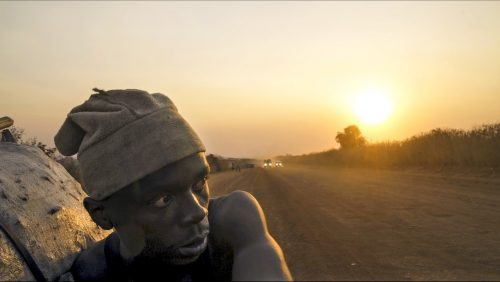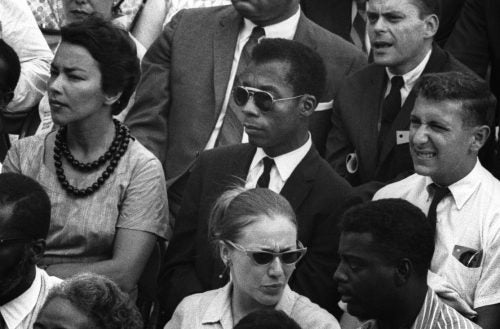
For the second year in a row, with help from a grant from the FACE Foundation (an organization in support of French-American cultural exchange in education and the arts), Boise State will host the Tournees French Film Festival on campus Jan. 24-Feb. 8. Films will screen at 6 p.m. in Skaggs Hall in the Micron Business and Economics Building. Films have English subtitles.
Each screening is free and open to the public, and will include comments from a faculty member.
“We hope all of the films get audience members talking about diversity and inclusion, from issues of race and ethnicity to gender bias and mental health stigma,” said Mariah Devereux Herbeck, a professor in the Department of World Languages and a festival organizer.
Among this year’s films, “I Am Not Your Negro,” directed by Haitian filmmaker Raoul Peck and based on the work of writer James Baldwin. This screening, said Devereux Herbeck, will take place on Feb. 1, marking the first day of Black History Month. It is the sole film in English.

The full line-up:
Jan. 24: “Makala,” presented by Isaac Castellano, Department of Political Science
The film, directed by Emmanuel Gras, explores the everyday life of a charcoal salesman in the Democratic Republic of Congo. French documentary filmmaker Emmanuel Gras follows 28-year-old Kabwita Kasongo through the entire process of making and selling charcoal. Gras’ film anchors one man’s struggle in the larger context of the Congo’s breathtakingly beautiful landscape and its rapidly shifting economy.
Jan. 25: “12 Jours” (“12 Days”) presented by April Masarik, Department of Psychology
The French legal system calls for any individual who has been hospitalized in a psychiatric facility against his or her will to appear before a specialized judge 12 days after being admitted. After discussing the case with the patient and his or her counsel, the judge determines the length of hospitalization. Raymond Depardon, a documentarian with extensive experience filming both the French legal system and in hospitals, was given exceptional access to several of these closed hearings at a facility near Lyon. The case of one patient’s workplace harassment at a telecommunications firm sketches a terrifying picture of a person’s vulnerability under the reign of late capitalism.
Jan. 31: “Bande de Filles” (“Girlhood”) presented by Adriane Bang, Gender Equity Center
Céline Sciamma’s third feature continues to probe what has been this perceptive writer-director’s abiding interest: female pubescence and adolescence, the stage when bodies and identities are still in flux. Set in the impoverished banlieues that ring Paris and are home to many of its French-African denizens, “Girlhood” focuses on Marieme (Karidja Touré), a 16-year-old who assumes responsibility for her two younger sisters while their mother works the night shift.
Feb. 1: “I Am Not Your Negro,” presented by Gayla Thomas-Dabney, Equity and Inclusion
Haitian filmmaker Raoul Peck’s documentary on racism in America draws a clear line from the Civil Rights struggle to today’s Black Lives Matter movement via the thought of writer James Baldwin. Peck based the documentary on Baldwin’s unfinished manuscript “Remember This House,” which considered the history of racism through memories of Baldwin’s friends the civil rights leaders Martin Luther King Jr., Malcolm X and Medgar Evers.
Feb. 7: “La Passion de Jeanne D’Arc” (“The Passion of Joan of Arc”) presented by Ryan Cannon, Department of Communication
In 1927, Danish filmmaker Carl Theodor Dreyer, the director whom James Agee would later call “one of the few moralists, and classicists, and incorruptible artists, in movies,” was invited to make a film in France. He settled on the story of Joan of Arc and spent a year researching her life, drawing primarily from the transcripts of her trial. The resulting account of her trial and execution stands as one of the towering achievements of the silent cinema and consistently has been voted one of the best films of all time.
Feb. 8: “L’Atelier” (“The Workshop”) presented by Jason Herbeck, Department of World Languages
Writer-director Laurent Cantet explores issues haunting contemporary France. Olivia, a successful Parisian novelist, has been hired to spend the summer in La Ciotat, a beautiful but economically battered town on the Mediterranean, teaching a writing workshop for a diverse group of unemployed young people. Through class discussions and the conflicts that ensue, Cantet looks at the integration of conflicting religious and cultural beliefs in a period plagued by the threat of terrorism. “The Workshop” builds into a breathtaking thriller.